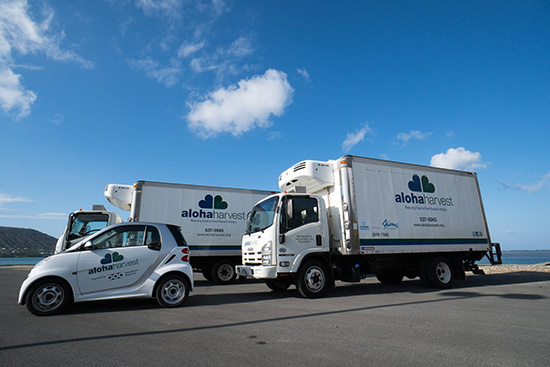
center in Kane‘ohe. – Courtesy of Habilitat
by Hayley Davis
Special to Ka ‘Ohana
Drug addiction and homelessness are major issues in the state, particularly among young people.
Jeff Nash has mentored troubled teens and young adults caught in the grips of addiction. He is the executive director of Habilitat, a local non-profit organization that helps people overcome substance abuse and homelessness through a wide range of services including a residential long-term addiction treatment center. Being a former homeless addict himself, he knows what it is like to have demons.
“By the time I was 18, I was a full-blown heroin addict,” Nash said.
His parents took him to Habilitat in the hopes that he would change his habits. It took him two tries at Habilitat’s long-term drug addiction treatment center to beat his addiction; now he runs the place.
He said young people are getting more involved in substance use at younger ages.
“They grew up with it. Their families do it. It’s almost normalized in the household. They see their mothers, fathers, aunties and brothers using the drugs, selling the drugs, and at some-point at a young age they begin to experiment with it. Before they know it, they are actively involved in the lifestyle of addiction,” he said.
The use of psychotropic medications is a widely practiced method in treating drug addiction. Many believe that substance use disorder is a disease or a chemical imbalance that occurs naturally and cannot be cured without medication.
Doctors prescribe a wide range of products from anti-depressants to anti-psychotics. These medications can potentially alter ones’s brain chemistry forever, making them very controversial.
Madeline Areford, a clinical staff member at Habilitat who has experience with the use and misuse of these medications, said, “It depends on the person. For the most part, I believe medications bring people further away from recovery.”
She mentioned alternatives to medication such as emotional healing and talk therapy.
“Addicts need to be able to show themselves they can rely on themselves,” she said. “Psych meds are counterproductive to that.”
Now during COVID-19, there are even more limitations placed on addicts. People are experiencing difficulty finding treatment facilities and detox centers, and the lack of human interaction is making recovery even harder.
Becky Harrison, marketing director at Habilitat and a former addict, said, “It is more difficult to get into treatment because of COVID-19 concerns. Many programs stopped intake.”
And according to an April 2020 article on the National Center for Biotechnology Information website, social distancing makes it difficult for addicts to reach the emotional support they so much need.
What can we do to resolve these issues? We know that addiction and homelessness are correlated. We know that addicts turn to drugs because of issues they have yet to resolve within themselves, and they become homeless often due to lack of ability to hold a job and inability to convince themselves to get help. Their families give up on them, and they give up on themselves.
Nash speaks of how Habilitat tackles the problem through a holistic approach. “Once we get people to stop using the substances, we must help them sort through what got them to medicate themselves in the first place,” he said.




